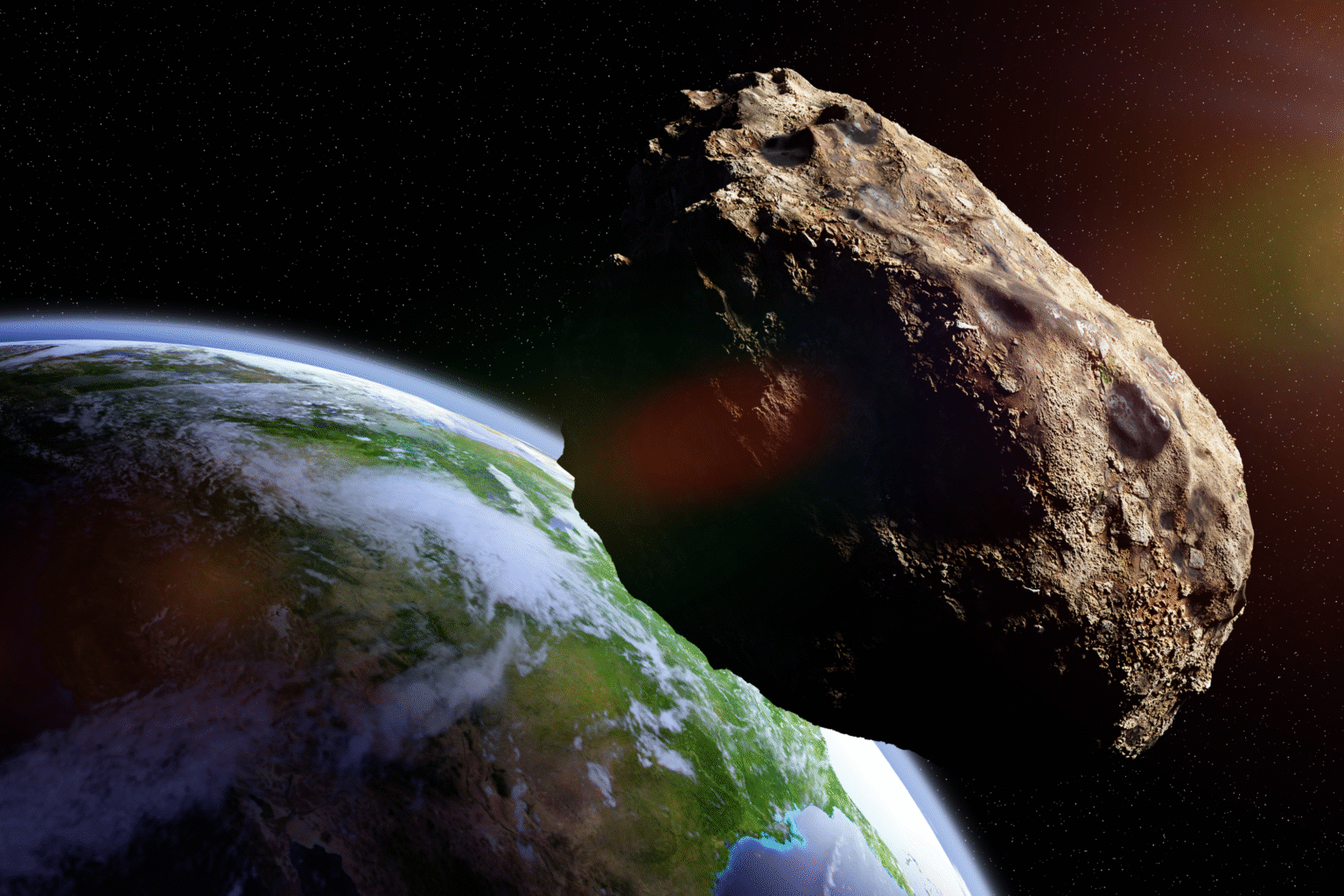An asteroid the size of a skyscraper is approaching Earth at a sprightly 24,136 miles per hour—and will be at its closest to us in two days’ time.
The space rock—dubbed “2025 FA22″—is a sizeable 520 feet across. On a cosmic scale, it will come close to Earth, getting to within just 523,000 miles of our home.
For context, the present distance between Earth and the moon is around 239,000 miles.
Asteroids are rocky remnants from the early formations of the solar system 4.6 billion years ago that can be found orbitting the sun. They can vary massively in size—one of the largest, known as Vesta, is around a whopping 329 miles in diameter.
NASA’s Asteroid Watch tracks asteroids projected to come within 4.6 million miles to Earth. Any object larger than 492 feet (150 meters) within this distance, is deemed a potentially hazardous object.
And while the skyscraper-sized 2025 FA22 is the biggest visitor to our backyard this week, it’s far from the only thing coming relatively close to Earth in the coming days.
On September 16 alone, an asteroid measuring 77 feet will come within 126,000 miles of our planet, and a 45-foot asteroid will pass within 698,000 miles.
On the same date, an asteroid the size of an airplane—a whopping 160 feet—is also due to come within 990,000 miles of Earth.
September 18, the same date as the building-sized asteroid will pass close to Earth, will also see a 41-foot asteroid coming within 634,000 feet of the planet.
There are currently 1,362,002 known asteroids in the solar system, according to NASA.
Outer space is filled with asteroids, and any that appear to be in danger of approaching Earth is tracked by NASA, with the Center for Near-Earth Object Studies (CNEOS) computing their odds of impact.
One famous asteroid, named Apophis, is due to pass close by in April 2029—but upon its discovery in 2004, initial calculations indicated a possibility it would hit our planet.
The asteroid Apophis is now predicted to safely pass around 23,189 miles from the planet’s surface on April 13, 2029.
Do you have a tip on a science story that Newsweek should be covering? Do you have a question about space? Let us know via science@newsweek.com.
Read the full article here

